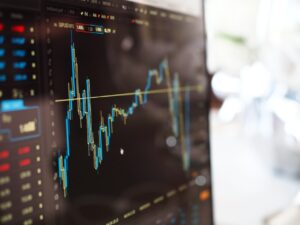I posted this article on the site a year ago. Thought I would repost it.
INTRODUCTION
It is not a secret that the stock market can be volatile; history has shown us this. There are many factors which are the cause of a falling market; they could be a change of President in the US, correction in the market, or nervousness by investors resulting in them selling off their stocks. Whether a 1929 or 87 style crash occurs this decade or not, one thing is clear; it is still important to save and invest for the future because one thing is certain; you will cease working one day and need something to fall back on.
History of share market crashes
When one thinks of share market crashes two years spring to mind, 1929 and 1987, hopefully, such crashes on the scale which wiped out life savings are not going to occur in the foreseeable future. It is not guaranteed that it will not happen, but then nothing in this world is guaranteed apart from death and taxes.
There have been other financial meltdowns outside of the two main ones. Asian Financial Crisis of the 90s and the GFC of 2008 wiped billions of dollars off share values.
The next major financial meltdown in the markets could be caused by the very people who will be most affected by it, Baby Boomers.
Why?
Because as more and more of them retire, they will withdraw their savings out of the stock market causing a major selloff.
This has been predicted in the past but there has not yet been any sign of this happening with the markets at record levels, however, who is bold enough to predict which direction the stock exchange will head in the future?
One thing you can guarantee is that there will be another market crash in the future; investors just need to be prepared for it.
Here are the most notable share market crashes within the last 100 years.
1929-The Wall Street Crash
The Wall Street crash lasted for over four years. Investors borrowed money to buy shares and when shares were sold off to repay the money to their creditors investors were left out of pocket. The 1929 crash led to the 1930s Great depression.
1962-The Kennedy Slide
The stock market had enjoyed a steady rise since the 1929 crash with the ten years prior to 1962 being good ones for the stock exchange. This all changed in January when share prices plummeted. President Kennedy attributed the decline as a correction for the rises of the past ten years.
1973-74-Stock market crash
The Dow Jones fell by 45% during the stock market crash which lasted two years between January 1973 and December 1974. The UK markets feared even worse losing 73% of it’s value during this time. The collapse of the Bretton Woods System was to blame. This is a system devised many decades earlier on an agreed fixed currency rate. 44 countries met in Bretton Wood to discuss the currency issue in 1944 hence the name Bretton Woods System.
1987-Black Monday
19th October 1987 will always be known as “Black Monday,” after the biggest one day fall in the stock market in history took place. Leading up to the crash many traders borrowed money to purchase shares and as share prices rose they borrowed more money using the value of their shares as security, however, when the stock market dropped by 20% in one day many investors owed more money than the value of their shares and found themselves in financial turmoil.
1997-Asian Financial Crisis
Many stock markets in Asia fell dramatically between July and October due to an overheated market. Many who bought shares on credit or with borrowed money were hit hard by the crash.
2007-2008-Global Financial Crisis
The failure of several financial institutions in the United States.
2020-The Covid Market Crash
Stock markets dropped 34% in one day on March 23 2020 as Covid-19 was starting to take hold. This started a worldwide recession caused by the Covid-19 pandemic.
Who knows when the next share market crash will occur; one thing is for certain, it will be out of the control of investors. It is up to each of us to plan our finances in such a way as to minimise the effect of a financial meltdown in the markets. This can be done by diversification; that is by having your money invested in a range of industries. This way you are not placing too many eggs in the one basket.
ABOUT THIS ARTICLE
This article does not represent financial advice, but rather is the opinion of the writer. It is strongly advised that you seek independent advice from a qualified person. Feel free to share this article. You may use this article as content for your ebook or website. Visit my site www.robertastewart.com for other articles.




